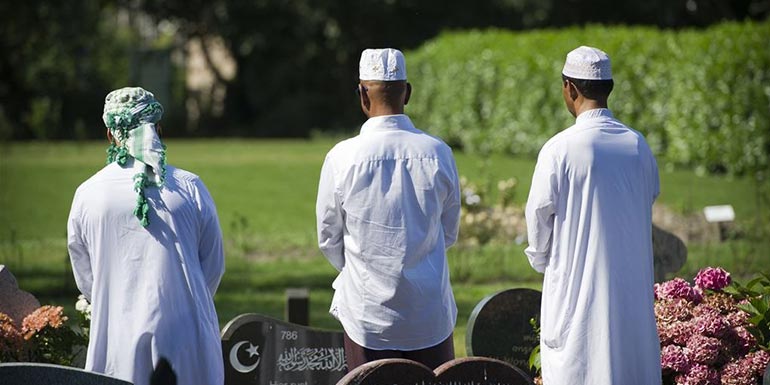With borders closed across the globe, immigrants can no longer be laid to rest in their home lands with their religious rites.
Traditionally, first generation immigrants, in Europe, have preferred to be buried in their homelands.Large populations of Moroccans and Tunisians in France, Germany, and the Netherlands are forced to look for other solutions as both Morocco and Tunisia have suspended all repatriation due to the coronavirus.
Muslims are buried as soon as possible in a shroud and directed into the grave, The plots are facing Mecca and are to be undisturbed for eternity.
Returning home
On a yearly basis thousands of bodies are sent back to the Northwest Africa region by specialist funeral homes and repatriation organisations.
Once in land of their birth, Muslims are buried as soon as possible, in a shroud , directly into the grave. The plot is facing Mecca and is to be undisturbed for eternity.
Many of the patrons are first generation immigrants who came to Europe as migrant workers in the 1960’s. With the coronavirus repatriation operations suspended, the Muslim community is now forced to bury their loved ones locally, in new restricted ways as the rest of the world.
Muslim cemeteries in Europe
For years there has been a serious shortage of Muslim burial plots in Western Europe. Even though a crowdfunding has raised enough money, in a record time, to build a large Islamic cemetery, in The Netherlands, with 1400 plots, this doesn’t help the Muslim community right now. Rector of the Grand Mosque of Paris said: “Covid-19 has, unfortunately, hit the Muslim community with full force. This situation has been going on for years, and we are now paying a high price for it.”
In the Netherlands there are currently only three Muslim cemeteries. These cemeteries have seen an increase in Islamic burials since the coronavirus entered the country. Harrie van Gastel, secretary of cemetery ‘Oude Landen’ said: “We used to bury one Muslim about every two weeks and at the moment we bury two Muslims a day. We still have space, but if it continues like this it could get tight.”
Compromises being made
The real issue for Muslims being laid to rest in Europe is that plots are rented, for 20 – 50 years, versus purchased forever. Local governments are however looking into ways to be lenient to the Islamic community. In the Netherlands for example they have offered Muslims to be assured of a 100 year lease.
Muslim families are also looking into ways to preserve the body until travel restrictions are lifted again, even though according to Islamic believe the body should be buried as soon as possible after death.
